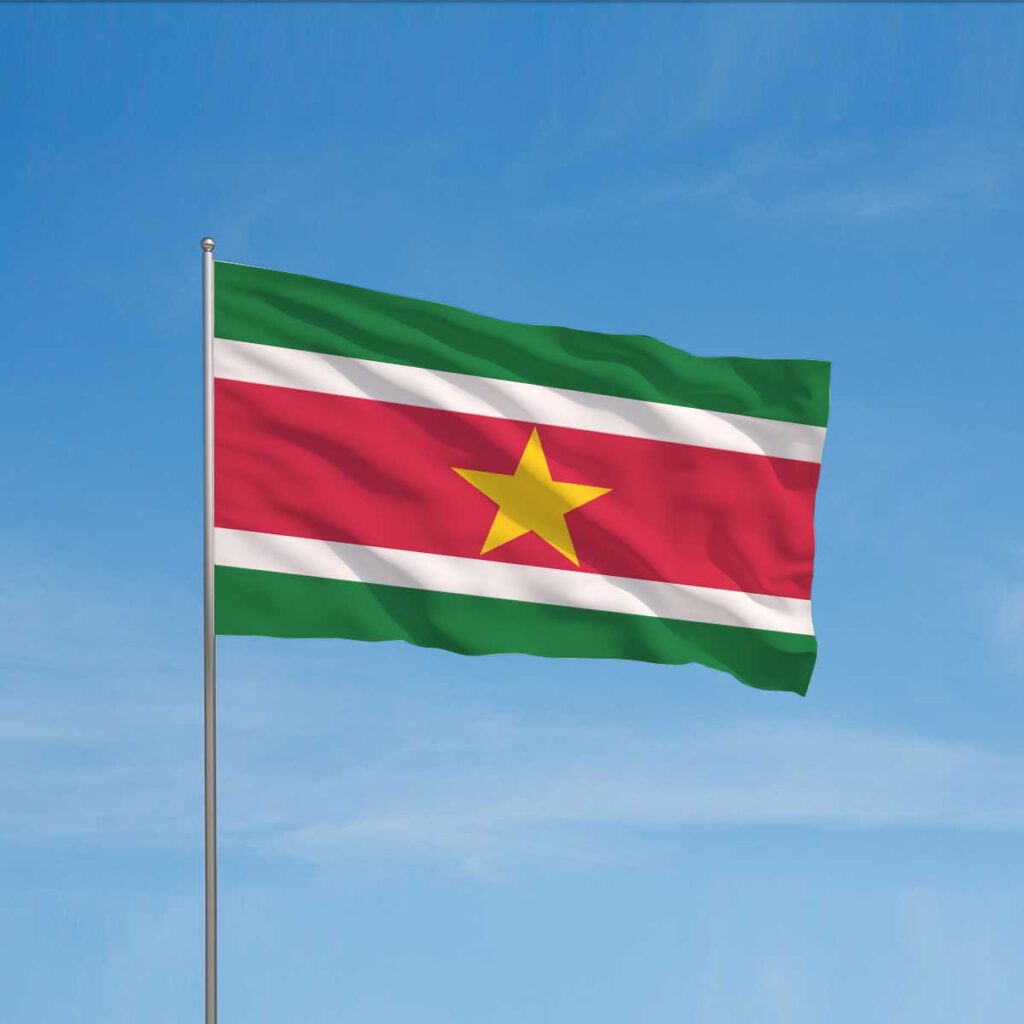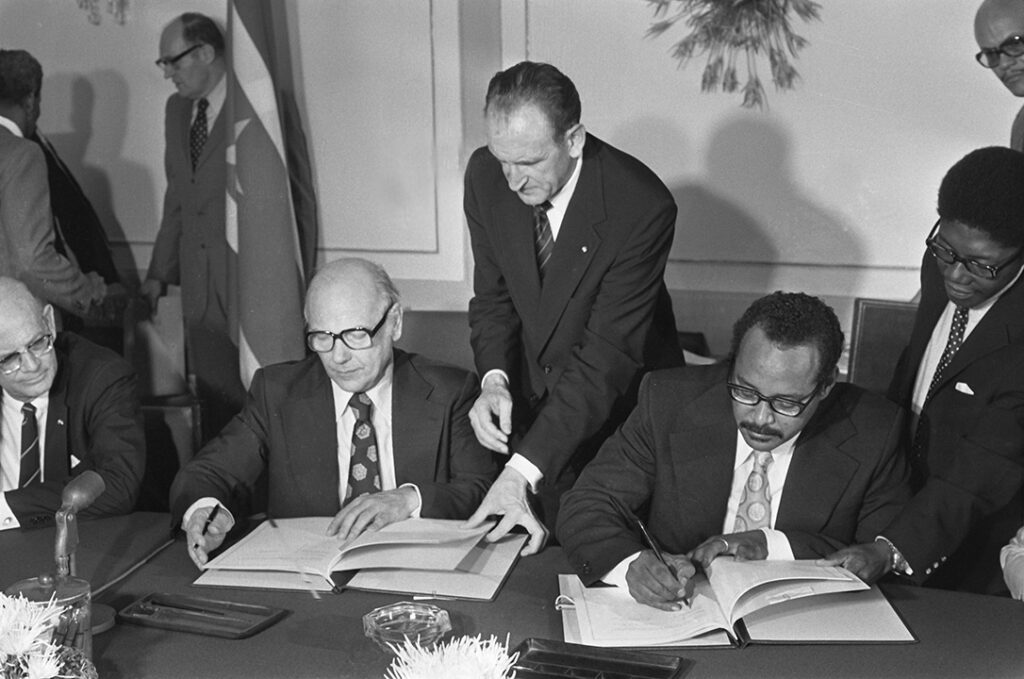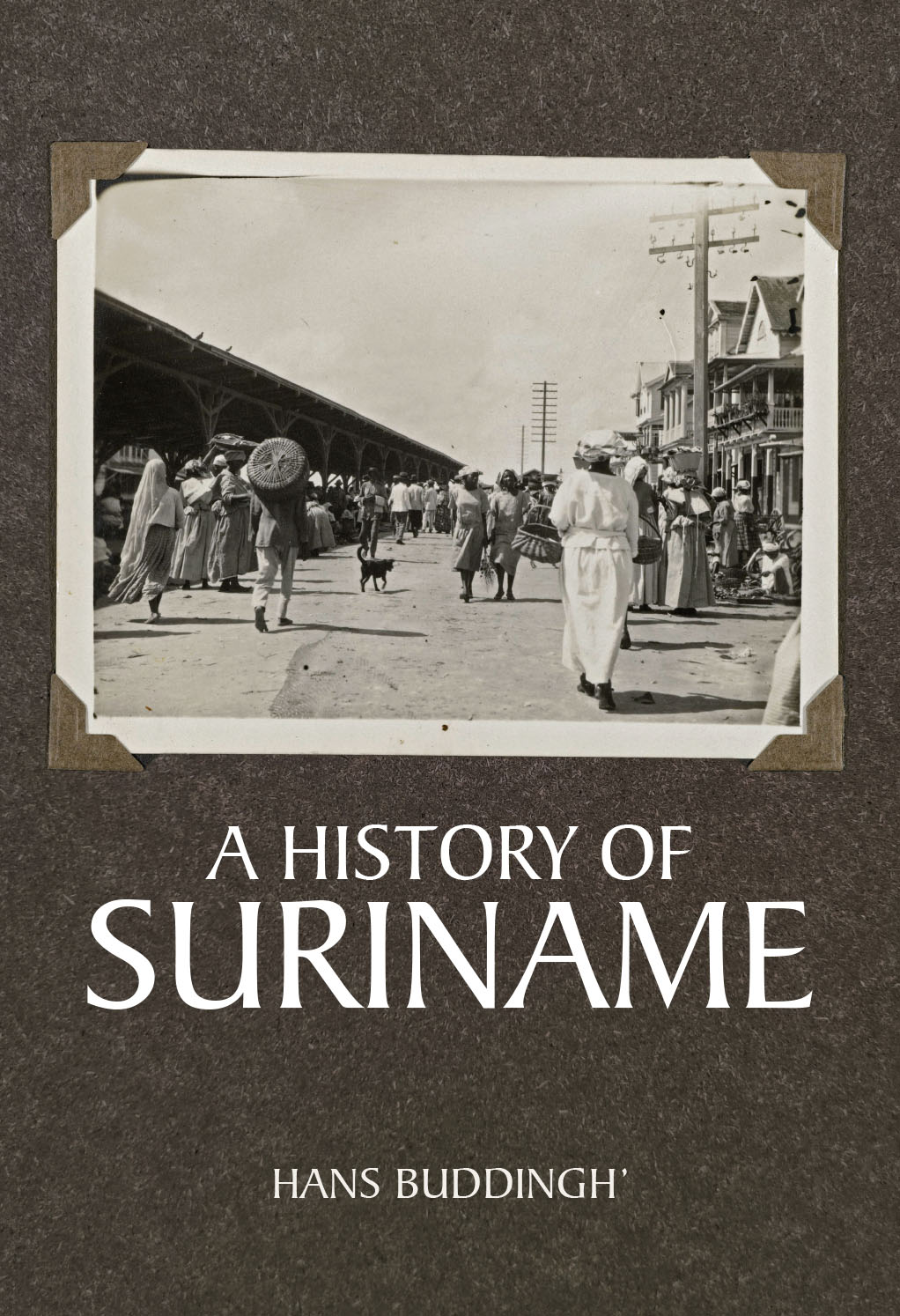What’s up? In this article, we’ll be diving into Suriname’s Independence and exploring its historical background. It’s an intriguing topic that sheds light on how this beautiful country attained its freedom. So, sit back and get ready to learn more about Suriname’s journey towards independence.
Curious to know more? Well, this article will provide you with a detailed historical perspective on Suriname’s path to independence. From its colonial days to the struggle for self-governance, we’ll uncover the key milestones that shaped Suriname into the independent nation it is today. So, if you’re interested in history, politics, or simply want to expand your knowledge about Suriname, this article is definitely worth a read. Stay tuned to discover the fascinating story behind Suriname’s independence!
Introduction
Suriname’s independence holds a significant place in the country’s history and the struggles faced by its people. This article aims to provide a historical perspective on Suriname’s journey towards independence, exploring the early colonization period, the rise of independence movements, the decolonization process, post-independence challenges, international relations, cultural identity, economic development, environmental concerns, education and empowerment, healthcare, and the role of sports and recreation.
Early Colonization
Dutch Arrival in Suriname
Suriname’s history of colonization began with the arrival of the Dutch in the 17th century. Seeking to establish trade routes and expand their influence, the Dutch established a presence in the region, starting with the city of Paramaribo.
Establishment of Plantations
In their quest for economic gains, the Dutch colonizers introduced sugarcane plantations and brought enslaved Africans to work on these plantations. This marked the beginning of a dark period in Suriname’s history, with the exploitation and enslavement of both Indigenous and African people.
Enslavement of Indigenous and African People
The enslavement of Indigenous and African people in Suriname had devastating consequences for these communities. They were subjected to brutal conditions, forced labor, and denied basic human rights. This chapter of Suriname’s history continues to have a profound impact on the country’s social fabric and cultural identity.
Impact of Slavery on Suriname
The legacy of slavery has shaped Suriname’s society in various ways. It has influenced patterns of racial and ethnic diversity, cultural fusion, and socio-economic disparities. The scars of slavery are still visible today, highlighting the need for healing and reconciliation.

Rise of Independence Movements
Influence of Enlightenment Ideals
The Enlightenment period, which advocated for individual rights, freedom, and self-governance, had a profound impact on Suriname’s society. As ideas of liberty and equality spread, they sparked a desire for change and freedom among the people of Suriname.
Emergence of Creole Identity
During the late 18th and early 19th centuries, a reawakening of cultural identity occurred among the Afro-descendant population of Suriname. The Creole identity, influenced by West African heritage and the experiences of slavery, emerged as a powerful force for social and political change.
Formation of Political Organizations
Various political organizations began to emerge, championing the cause of independence. These organizations aimed to mobilize the masses, create awareness about the injustices faced by the people, and demand self-governance.
Calls for Self-Governance
As the desire for independence grew stronger, calls for self-governance resonated throughout Suriname. Leaders and activists, such as Anton de Kom, Cynthia McLeod, and Jopie Pengel, played pivotal roles in articulating the aspirations of the people and demanding autonomy from Dutch rule.
Netherlands Antilles and Suriname Federation
Creation of the Netherlands Antilles
In the aftermath of World War II, the Dutch government made efforts to decentralize its colonial administration. This led to the creation of the Netherlands Antilles, a federation comprised of several Dutch Caribbean islands.
Inclusion of Suriname
Suriname, already marked by a strong desire for independence, was included in the Netherlands Antilles federation. However, this move did not fully address the aspirations of the Surinamese people, leading to frustrations and growing demands for complete independence.
Frustrations with the Federation
The Netherlands Antilles federation did not provide Suriname with the level of autonomy and self-governance that it sought. Suriname faced numerous challenges within the federation, including economic disparities, limited decision-making powers, and a disregard for the cultural and historical specificities of the nation.
Growing Demand for Full Independence
As frustrations with the Netherlands Antilles federation grew, the demand for full independence intensified. Suriname was on the cusp of a new chapter in its history, one that would require negotiations, determination, and resilience.

Decolonization Process
Negotiations with the Netherlands
Suriname engaged in discussions with the Netherlands to lay the groundwork for its independence. Negotiations focused on determining the terms of separation, the transfer of power and administration, and the establishment of a new political system.
Establishment of Autonomous Status
After years of negotiations, Suriname achieved autonomous status within the Kingdom of the Netherlands. This marked a significant step towards independence, but Suriname still had to overcome various challenges to fully realize its aspirations.
Transition to Independence
On November 25, 1975, Suriname’s dream of independence became a reality. As the Dutch flag was lowered and the Surinamese flag was raised, the nation entered a new era of self-governance, taking charge of its destiny.
Historical Significance of Independence
Suriname’s independence holds immense historical significance. It represents the triumph of the Surinamese people over centuries of colonization and oppression, and it symbolizes their determination to forge their own path towards a brighter future.
Post-Independence Challenges
Political Instability
The early years of independence were marked by political instability, with frequent changes in government and power struggles. The transition from a colonial system to an independent state presented numerous governance and political challenges for Suriname.
Economic Dependency
Suriname faced the challenge of economic dependency on former colonial powers and limited diversification of its economy. The country relied heavily on the export of natural resources such as bauxite and gold, making it vulnerable to fluctuations in global markets.
Social Fragmentation
Suriname’s diverse ethnic and cultural makeup, a result of its colonial history, created social fragmentation within the nation. Overcoming these divisions and forging a sense of national unity became a crucial objective for the post-independence government.
Efforts for National Unity
Suriname embarked on a journey towards national unity, recognizing the importance of inclusivity and equal representation. Efforts were made to bridge the gaps between different ethnic and cultural groups, promote social cohesion, and foster a sense of collective identity.

Suriname’s International Relations
Relations with the Netherlands
Following its independence, Suriname maintained diplomatic relations with the Netherlands, its former colonial power. These relations have evolved over time, with a focus on trade, development assistance, and cultural exchange.
Caribbean Community and Common Market
Suriname became an active member of the Caribbean Community and Common Market (CARICOM), strengthening regional cooperation, economic integration, and political collaboration with its Caribbean neighbors.
Pan-American and Global Alliances
Suriname expanded its global engagement, forging alliances with international organizations such as the Organization of American States (OAS) and participating in forums like the United Nations General Assembly. These alliances have allowed Suriname to have a voice on global issues and benefit from international cooperation.
Foreign Aid and Development Assistance
Suriname has received foreign aid and development assistance from various countries, organizations, and international financial institutions. This assistance has supported the country’s development efforts, particularly in areas such as infrastructure, healthcare, education, and sustainable development.
Cultural Identity and Diversity
Ethnic Composition of Suriname
Suriname’s cultural identity is deeply rooted in its diverse ethnic composition. While the country is home to various ethnic groups, including Creoles, Maroons, Hindustanis, Javanese, Chinese, and Indigenous peoples, it is the interplay of these cultures that makes Suriname truly unique.
Cultural Fusion and Diversity
Suriname’s cultural diversity has led to a rich tapestry of traditions, languages, music, and cuisine. The fusion of African, European, and Asian influences has created a vibrant cultural landscape, with festivals such as Keti Koti, Phagwa, and Id-ul-Fitr celebrating this diversity.
Preservation of Indigenous Cultures
Efforts have been made to preserve and promote the cultures of Indigenous peoples in Suriname. Recognizing their role as custodians of the land and their ancestral knowledge, initiatives have been undertaken to protect their rights, languages, and traditional practices.
Interplay of Languages and Traditions
Suriname is a multilingual society, with Dutch being the official language. However, Sranan Tongo, an English-based creole language, is widely spoken, reflecting the cultural interplay and linguistic diversity of the nation.

Economic Development and Resources
Agriculture and Natural Resources
Agriculture plays a crucial role in Suriname’s economy, with products such as rice, bananas, and timber contributing to both domestic consumption and export. Additionally, the country’s vast reserves of bauxite, gold, and other minerals have attracted international investment.
Gold and Bauxite Mining
Suriname is known for its significant gold and bauxite mining industry. These resources have the potential to drive economic growth and development, but careful management and sustainable practices are essential to prevent environmental degradation and ensure benefits for all.
Energy Sector and Hydropower
Suriname has untapped potential in the energy sector, particularly hydropower. The construction of hydroelectric plants can provide clean and renewable energy, reducing the country’s reliance on fossil fuels and contributing to sustainable development.
Challenges and Opportunities for Growth
Suriname faces various challenges in its quest for economic development, including infrastructure deficiencies, limited diversification, and the need for skilled labor. However, opportunities abound, particularly in the fields of tourism, agriculture, renewable energy, and sustainable industries.
Environmental Concerns
Deforestation and Logging
Suriname is blessed with lush rainforests and abundant biodiversity. However, unsustainable logging practices and deforestation pose significant threats to these ecosystems, impacting wildlife habitats, hydrological cycles, and climate regulation.
Threats to Biodiversity
Suriname’s rainforests are home to numerous species of flora and fauna, many of which are unique and endangered. Protecting biodiversity and implementing conservation measures are vital to ensure the long-term survival of these ecosystems.
Climate Change Adaptation
As a low-lying country, Suriname is vulnerable to the impacts of climate change, including rising sea levels, increased rainfall, and extreme weather events. Adaptation measures, such as coastal protection, disaster preparedness, and sustainable land management, are crucial for the country’s resilience.
Sustainable Development Initiatives
Suriname has recognized the importance of sustainable development and has taken steps towards implementing initiatives that balance economic growth with environmental conservation. These include promoting eco-tourism, implementing sustainable forestry practices, and increasing renewable energy production.
Education and Empowerment
Investment in Education
Suriname recognizes the transformative power of education and has made significant investments in its education system. Efforts have been made to improve the quality and accessibility of education, reducing disparities and empowering individuals to reach their full potential.
Access to Quality Education
Ensuring access to quality education for all Surinamese children remains a challenge, particularly in rural and remote areas. Improving infrastructure, teacher training, and curriculum development are key areas of focus for the government and stakeholders.
Skills Development and Vocational Training
In order to address unemployment and promote economic growth, Suriname has emphasized the importance of skills development and vocational training. By equipping individuals with the necessary skills, they can contribute to the nation’s development and improve their own livelihoods.
Promoting Gender Equality
Suriname has made strides in promoting gender equality in education and society at large. Efforts have been made to address gender-based violence, increase women’s participation in decision-making, and promote equal opportunities for all.
Healthcare and Public Health
Healthcare Infrastructure
Suriname has made progress in developing its healthcare infrastructure, expanding access to medical services, and improving healthcare delivery. However, challenges remain in terms of healthcare access in remote areas and the quality of healthcare services.
Disease Prevention and Control
Efforts have been made to prevent and control the spread of diseases in Suriname, including HIV/AIDS, malaria, and tuberculosis. Public health initiatives, vaccination campaigns, and awareness programs have contributed to reducing the burden of these diseases.
Maternal and Child Health
Improving maternal and child health is a priority for Suriname. Initiatives have been implemented to reduce maternal mortality rates, improve prenatal care, and enhance child vaccination coverage, ensuring the well-being of women and children.
Improving Access to Healthcare
Ensuring equitable access to healthcare remains a challenge in Suriname. Efforts have been made to improve healthcare services in rural and remote areas, promote health insurance coverage, and address disparities in healthcare access and outcomes.
Sports and Recreation
Popular Sports in Suriname
Surinamese people have a strong passion for sports, with football (soccer), athletics, and cricket being among the most popular. These sports not only serve as recreational activities but also play a role in fostering national unity and pride.
Achievements in International Competitions
Suriname has produced exceptional athletes who have achieved success in international competitions. Athletes such as Anthony Nesty, Letitia Vriesde, and Edgar Davids have put Suriname on the global sports map and inspired younger generations.
Promotion of Physical Activity
Suriname recognizes the importance of physical activity in promoting a healthy lifestyle and preventing non-communicable diseases. Initiatives have been implemented to encourage sports participation, improve sports infrastructure, and enhance physical education in schools.
Role of Sports in National Identity
Sports play a significant role in shaping the national identity of Suriname. Through sports, people come together, celebrate their cultural diversity, and express their love for their country. Sporting events also foster a sense of pride and belonging among Surinamese people.
Conclusion
Suriname’s journey to independence has been marked by struggles, resilience, and a determination to chart its own future. From the early days of colonization and slavery to the emergence of independence movements and the challenges faced in the post-independence era, Suriname has overcome numerous obstacles to assert its identity on the international stage. Today, Suriname continues to navigate the complexities of nation-building, addressing socio-economic disparities, preserving its rich cultural heritage, promoting sustainable development, and striving for a better future for all Surinamese people.
